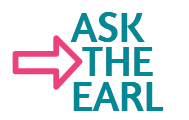The good news is that you don’t have to go back to college for another four years to get your real estate license. But that doesn’t mean that getting your real estate license is easy, by any means. So, how hard is it to get a real estate license? Many find the licensing process to be lengthy, pricey, and mentally exhausting.
It’s not difficult to get a real estate license. Understanding the state and national real estate concepts is the hardest part. The test takes several hours with 100+ questions, but you should get the mandatory 70-75% if you study. Getting a real estate license is more time-consuming than anything.
How Hard is it to get your real estate license?
The two steps of getting your license often considered most “difficult” are the pre-licensing course and passing the real estate exam. So we’re going to go over what makes each of these steps hard and how to make them a bit easier. Each state has different requirements for getting a real estate license that we have compiled here.
COMPLETING YOUR PRE-LICENSING COURSES
The first step toward getting your real estate license is completing your state-mandated pre-licensing course(s). Exactly how long you’ll spend in the classroom or traversing online modules will depend on your state’s requirements.
Most states require a 40 to 135-hour pre-licensing course.
Some states have a basic salesperson course, while a few states split up the coursework into several mini-courses during training. So you might also have to complete coursework in:
- Contract writing
- Real estate practices and principles
- Buying and listing practices
- Civil rights law and equal opportunity in housing
- Professionalism and ethical practices
Many prospective agents go into these online courses planning to “speed run” them to get pre-licensing done as quickly as possible. Unfortunately, a few states have put a cap on how many pre-licensing hours you can receive in a day—usually capped at 6 to 10 hours.
This can complicate getting your real estate license if you have a busy schedule and plan to knock out your state’s real estate agent pre-licensing course within a few days.
Another thing that makes getting your license more complicated at this stage is that a few states will only accept in-person pre-licensing courses. If you work a full-time job or have children to care for at home, you might have to give up your evenings and hire a babysitter, take a few weeks off of work, or sacrifice the majority of your weekends for the next few months. This is one of the reasons I wrote another article about the seven best ways to get your real estate license.
Finding the Right School for Your Real Estate Licensing
Finding the right school to get your real estate license is essential to becoming a successful real estate agent. There are many online schools that offer comprehensive programs that will prepare you for the licensing exam. Make sure to research the school, look for reviews and find out what type of program they offer.
When selecting a real estate school, you want to make sure it is accredited and recognized by the state in which you intend to practice. You should also inquire about the curriculum and ask if the course includes hands-on experience, such as field trips and role-playing.
The cost of the real estate licensing course can vary depending on the school and the length of the program. Be sure to compare prices and find out if there are any discounts or special offers available. It’s also important to inquire about the school’s refund policy in case you need to drop out of the course.
HOW HARD IS THE REAL ESTATE EXAM – THE TRICKY REAL ESTATE TOPICS
The courses themselves aren’t as difficult as understanding the complex topics in real estate that are likely brand new to you—of course, that’s unless you’re coming from a career in law, mortgage, or finances and have some hands-on experience with the subject matter.
Not only do you have to be knowledgeable in your state concepts and real estate license laws, but you also have to be an expert on the national side as well. If you’re wondering how much you need to know about buying and selling homes, take a look at the topics you’ll cover:
- Mortgages (adjustable-rate, fixed-rate, conventional, FHA, VA home loans)
- Licensing requirements (pocket cards, exams, transferring brokers, commissions)
- Estates (fee simple, life estates, life tenants, leaseholds)
- Tenancy (joint, in common, entirety, rights of survivorship)
- Restrictions (easements, encroachments)
- Titles, deeds, and contracts
- Agent duties (dual agency, fiduciary relationships, E&O)
- Leases, homeownership, and zoning laws
- Environmental laws (national and state)
- Real estate mathematics
Having a clear understanding of these vast subject areas is necessary. What makes these topics complicated is that many are easy to confuse, use similar terminology or words, and aren’t easy to decipher just by looking at the terms.
To truly understand these concepts, you’ll need to be able to practically memorize the hundreds of pages and concepts within your real estate textbook, study for hours on end, and ace the practice exams in your exam prep program.
THE PRE-LICENSING FINAL EXAM
Another thing worth pointing out is that you’ll need to pass the real estate license exam for your pre-licensing course. This gets in the way of many prospective agents’ hopes of sitting in the back of their in-person classroom and playing around on their laptops as they squeeze in the mandatory hours. This also means you can’t stream the online modules in your computer’s background as you sit at your desk at work.
HOW TO MAKE IT EASIER
You need to take your pre-licensing seriously, pay attention during your in-person or online training, ask questions on topics you’re confused about and do additional research to further your understanding. Those are the best ways to ensure you see success moving forward.
Learn Good Test-Taking Practices
Real estate license tests can be challenging but with the right preparation, you can pass them with flying colors. Your state exam prep course should cover all aspects of the exam, so it is important to remember the goal is to get a passing score.
Learn the material, practice answering questions and create a study plan that focuses on the areas where you are weak.
Gaining a passing score on the real estate exam requires a commitment to studying. Taking a State Exam preparation course is the best way to ensure you have the resources and the knowledge you need.
Prepare yourself to succeed by learning the material, working through practice questions, and forming a study plan that focuses on your weaker areas. Remember, your goal is to acquire a passing score and become a successful real estate agent.
Depending on the state, you may be asked to complete a pre-licensing course, take and pass a state licensing exam, and complete a background check. So, it is important to research the requirements for the state in which you plan to work.
After meeting the requirements, you’ll need to apply for an active real estate license. Once approved, you can start practicing real estate and will be required to complete continuing education courses to maintain the license.
ACING YOUR STATE’S REAL ESTATE LICENSE EXAM
On top of passing your course’s final exam, you’ll also have to pass your state’s official real estate exam. Most states require a passing score of 70-75%, and some states have rules that limit the number of times an applicant can take the exam before having to take additional training. You can’t just take the test dozens of times until you finally pass.
Knowing the exam is what stands between you and your real estate license (and not knowing what might be on the exam), it shouldn’t be surprising that the real estate exam pass rate hovers around a mere 50-60% in most states.
WHAT’S ON THE TEST
While we can’t tell you exactly what’s on the real estate exam, as this depends on the state real estate courses you’re applying for real estate agent licensure in and the question bank the testing facility is using; we can give you a little insight into what the exam is like:
- 100 to 150 questions (60-80 at the state level, the rest in a more general sense)
- 2 to 4 hours to complete the entire exam before applying for your real estate licenseAll multiple-choice questions
- Cannot use notes, cell phone, or textbook to take the exam
- National and state concepts and laws
This test format and subject area aren’t easy for many people for a few reasons.
Firstly, the test is long in terms of the time limit and the number of questions you’ll be asked. So you’ll really need to be able to focus come test day, not let your nerves get the best of you, and remember everything you learned during real estate license classes and your study sessions.
Another issue is that there’s no telling the topics that’ll be the most heavily focused on in the exam you get. For example, you might consider yourself an expert in mortgage concepts and find environmental laws a little tricky. But on the test, you may see that there are only three mortgage-related questions and seven on environmental laws.
HOW TO MAKE IT EASIER
You truly have to be an expert on all topics in the real estate business, as you never know the concepts you’ll come across during your real estate licensing exam until the big day. The best way to ensure that testing is a breeze and you move on to the next steps of licensing is by taking exam prep seriously, whether through your own studying tactics or an exam prep program.
Take as many practice exams as possible until you’re consistently scoring a 90%+ before scheduling your real estate license exam.
Here’s a video explaining some tips and tools for ensuring you pass your exam on the first attempt and get your license ASAP:
THE REMAINING STEPS OF LICENSURE
The two steps we just talked about are usually the hardest for a new real estate agent. The remaining steps tend to be a little easier, such as:
- Passing a background check: This step should be easy if you don’t have crimes like tax evasion, tax fraud, or burglary on your criminal record. The hardest part here will be finding an opening at the nearest fingerprinting facility.
- Sending in your application: Aside from a mound of paperwork that you and your new broker will have to fill out, this step is relatively simple. What makes it difficult is that you might have to wait weeks or a full month to get your license from the state.
In essence, once you pass your real estate exam, you’ll be coasting toward your new career in real estate. Be glad you got the hardest parts out of the way at the beginning.
Navigating the Real Estate Agent Licensing Requirements Step-by-Step
Getting your real estate license isn’t as hard as you may think. Depending on the state you live in, the licensing process will vary slightly. In the United States, most states require prospective agents to have a high school diploma, complete pre-licensing real estate classes, pass a state-administered exam, and then apply for a license. The process can take anywhere from a few weeks to several months.
Before you can apply for your license, you must first complete the required pre-licensing courses. These courses vary in length, but they are typically between 60-90 hours in duration. The courses cover a variety of topics, such as real estate law, finance, and ethics. You must pass the course with a score of at least 75%.
Once you have completed your courses, you must then pass the state-administered exam. This exam tests your knowledge of the topics you studied in the pre-licensing courses. You must answer at least 70% of the questions correctly in order to pass. Once you have passed the exam, you are eligible to apply for a license.
Why don’t real estate agents learn how to sell houses in real estate school?
Although real estate school teaches you the basics of local real estate laws and regulations, as well as the mathematics behind real estate transactions, it does not provide the skills and knowledge needed to become a successful real estate agent. In addition to learning the basics of real estate, potential agents should also take classes related to marketing, customer service and negotiation. This will give them the skills they need to successfully close a sale.
Real estate agents must also be able to understand the nuances of the local real estate market. To do this, agents need to be familiar with current real estate trends and have knowledge of the local housing market. A real estate agent should be able to use this knowledge to help their clients find the right properties and to negotiate the best deal possible on their behalf.
The role of the real estate broker companies
The states leave this training up to the real estate brokerage that you join. The National Association of Realtors may have some training, but the majority of it has to come from your managing broker and the real estate brokerage that you join.
Once you get thru the classes and exams, you will want to join a training based real estate company. I explore the best company to join another article linked here.
Conclusion

Is it hard to get a real estate license? Not really, if you have a plan of action and follow a schedule. The major concepts of real estate and the time commitment of getting your license make licensure a little complex. However, you shouldn’t face these problems if you take your education seriously, dedicate your time toward studying, and avoid going into this process, expecting it to be a breeze.
If you stick to your schedule and put forth your full effort, you should have your license in just a few short months.







